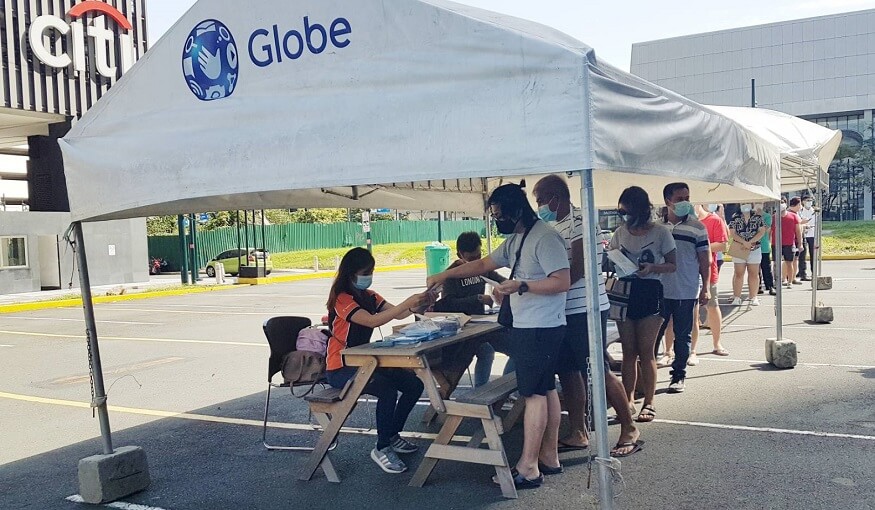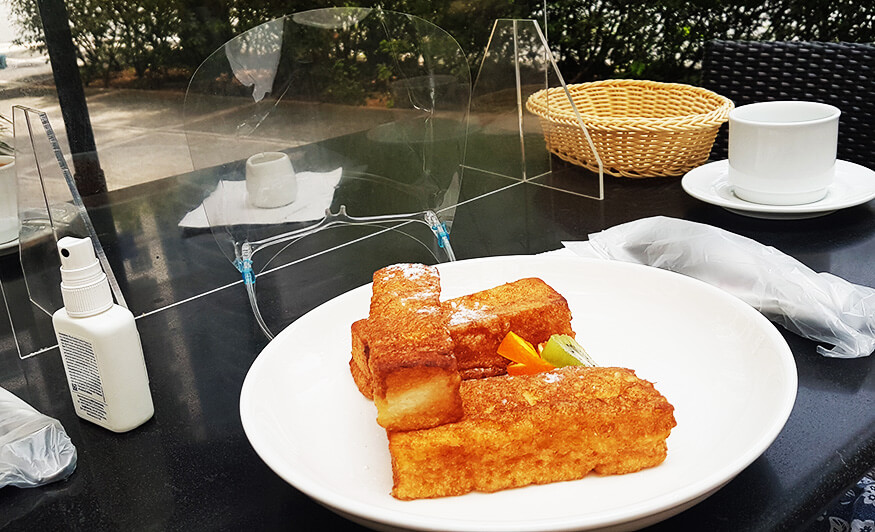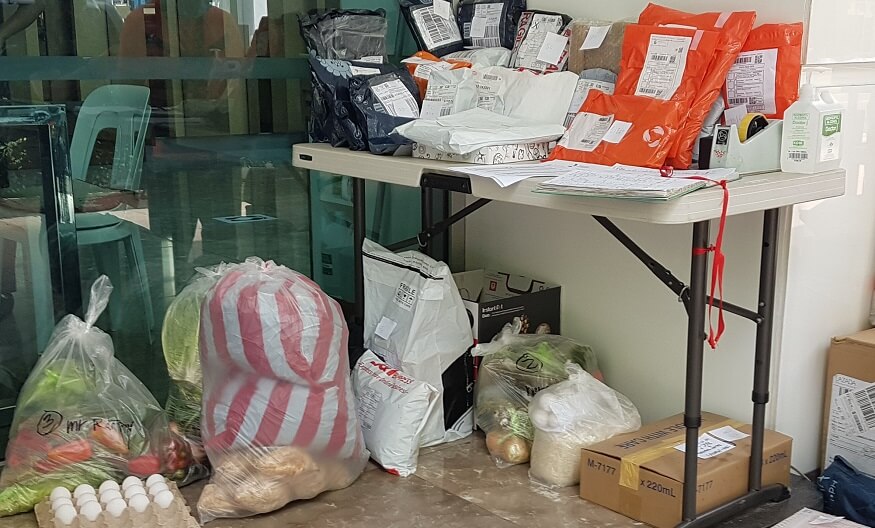Our shopping habit has changed dramatically under the COVID-19 pandemic. To reduce the chances of catching the virus, we go out as little as possible. We go to malls even less often because young kids and elderlies are not allowed in. As the lockdown affects businesses, and hence our income, we are also more careful in spending.
Concerns about the virus have also diminished the attractiveness of in-person shopping versus online shopping. Some apparel shops do not allow customers to try on clothes, and an appliance shop in BGC has an employee to follow each customer in the store.
More ways to shop online
Before the pandemic, most online shoppers went to large online malls like Lazada and Shopee, because of the one-stop shop arrangements that these large companies provide. Facebook, and less so, Instagram, was also popular with the younger shoppers like millennials.
In the early weeks of the lockdown caused by the pandemic, the normal supply chains for daily necessities were disrupted. People scrambled for sources to supply fresh produce like vegetables, meat, toilet paper and so on.
People started using social messaging platforms like Viber, WhatsApp and Line to look for supplies, especially amongst neighbors. Unlike traditional messaging apps, these social messaging platforms allow people to set up groups and share multi-media information with ease. Dozens of Viber groups, for example, were created in April and May for residents of individual condominiums  in BGC to exchange information as well as source supplies. Eventually, people started selling on these platforms. Even though these groups are sometimes invaded by non-residents who are desperate to sell their ware, to the annoyance of genuine residents, many people still find the benefits of joining these Viber groups outweigh the negatives.
Online shopping has issues, also
Online shopping is convenient. However, it is not without downsides. Issues of online shopping that we have encountered, as compared to in-person shopping, are:
– the price of fresh produce was changed without prior notice
– exact weight of fresh produce that we will receive is not known beforehand
– not sufficient information provided in the uploaded message/advertisement, e.g. size and color available of each product
– sellers’ history and reputation is not known, sometimes even in large online malls
– some online grocery shops do not allow fractional order size, e.g. 0.7 kg of a vegetable or fish
– You cannot check the goods prior to ordering
Recently, we ordered some rambutan fruits from a seller in Makati. The price was good. But when delivered, the fruits were of a different variety from what was agreed. The quality was much below our expectation. For online grocery shopping, we really should not just buy on the basis of price.
For small price change that occurs to fresh produce, it is not a big deal, as our top requirement is the quality and freshness of the produce and the reliability of the seller, but it can be annoying at times.
Online sellers that do not communicate adequately about the delivery time can also be an issue at times, as some people still need to go out of their home once in a while, especially when the buyer prefers to check the items before paying delivery. They cannot stay home all day to wait for the delivery. Small vendors, and resellers, often lack the capacity to provide proper billing and communicate clearly to customers.

Above: online shopping needs the support of efficient and reliable delivery personnel
Tips to be a smart online shopper
Tip 1 : Know the seller. Reviews can help if available, else we can check the seller’s history on the social media. Ask around. Your friends or neighbors may also know the seller.
Tip 2: Try them out with small orders. If you do not have any information about the seller, you should limit the value of the item that you order from the seller. 
Tip 3: Do not forget to check delivery fee. While the price tag of an item may look attractive, if the value of the item is only a few hundred pesos, a delivery charge of over P100 is substantial. 
Smart new ways to shop online
1. CoShop your favorite items from afar
If you are like us, then there are food items from the provinces that you miss. Shipping one piece of it may be too expensive, but what if you can find a group of people to order with you, so that the delivery fee per unit of the item is much lowered?
About every month, a resident in BGC coordinates the coshopping of buko pies from the famous Orient Bakery in Los Banos. If the order size can reach 15 pies, the total cost, including delivery fee, is only P290 per pie, which is as good as a bargain, considering the pie itself costs P200 already.

Above: you can order the famous Orient buko pie, pineapple pie etc together with others at CoShopNow
In addition to serving as an online shopping cart for the sellers, CoShopNow.com has features that help the sellers manage the group orders.
2. Get bulk price for small orders
Some sellers are willing to give discounts for large volume orders, because the cost of dealing with individual orders can be high, and there may be some urgency to sell the products quickly, such as cashflow or other reasons.
At the early days of face shields becoming mandatory, the retail price of a certain style of face shield called Heng De cost P100 or over. After three months, currently, you can buy one for P50 in department stores.
We know that the bulk sale price of Heng De face shield is P10 to P15 per piece for orders of 30 pieces or more, before delivery fee. Why pay more when all you need to do is find a few friends or neighbors and buy together?
Another example. The retail price of golden kiwi, a high quality imported fruit, is P60 per piece in a supermarket in BGC. One box of the fruit of 36 pieces is around P1,000 (about P30 per piece). If you can buy a few boxes of the fruit, you can get free delivery as well. 

Above: many residents start to sell fruits to neighbors through social messaging apps
Getting enough people to buy together with you is not easy, but with a website called CoShopNow.com, and their partnership with us TheFortCity.com, it is much easier to find coshoppers in BGC.
Basically, with coshopping, residents in a neighborhood, or friends that share a common interest or hobby, can leverage the power of their community by shopping together, and this can be done much easier with the help of CoShopNow.com, an online shopping cart service designed for communities.
Online Shopping and the environment
As we know, products that are delivered come with a lot of packaging. Bubble wrap, plastic bags, and plastic tapes, are needed to protect the items. 
As far as possible, let us not forget about the environment while we keep ourselves safe from the virus. Return the plastic bags that your vegetable suppliers used to deliver the veggies to the vendor. COVID-19 virus does not survive long outside human bodies. If you are worried, then you can spray alcohol on the plastic bags before you return them, or transfer the items delivered to you to your own bag, and not take the plastic bag from the vendor. 
Sellers can take a leaf from a company that sells fresh produce and meat. The Green Grocer wraps their food with biodegradable banana leaves or paper bag to reduce the harm of packaging to the environment. Now that’s what “practice what we preach” means.

Photo above: broccoli delivered wrapped in banana leaves instead of plastic bags








